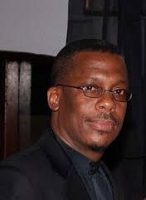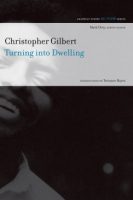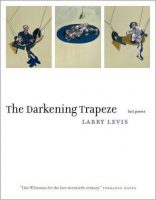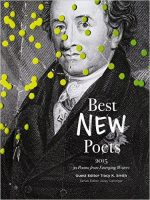January 13, 2016
Edited by David Sanders
Specimen Days
1783 — Erik Gustaf Geijer, Swedish historian/poet (Natthimmelen), is born.
1842 — Francois Coppee, French poet, is born.
1939 — Jacobus M "Jacques" Hamelink, Dutch writer/poet (Cold Unrest), is born.
1959 — Lasana M. Sekou, Saint Martin, Caribbean, poet/author (The Salt Reaper), is born.
1972 — Padraic Colum, Irish poet/writer/founder (Irish Review), dies at 90.

I still question
The way my fathers danced
While our mothers bore children
Stooped in labor over the clean Salt Ponds of Great Bay
Where you can still see them
Chanting ponums
—from “On Caribbean Aesthetics” by Lasana M. Sekou
“I still question / The way my fathers danced / While our mothers bore children” — Lasana M. Sekou
World Poetry
Was This the Poem That Sent a Young Iranian Woman to Prison?

An award-winning poet has been taken into custody by Iranian officials after a video of her reading a poem critical of the head coverings women must wear in the Islamic Republic of Iran went viral. Hila Sedighi was arrested at a Tehran airport Thursday upon return from a trip to the United Arab Emirates, according to the International Campaign for Human Rights, a nonprofit advocacy group based in New York City.
A poet has been taken into custody after a video of her reading a poem critical of the head coverings women must wear in the Iran went viral.
Recent Reviews
The Steady Unraveling of Days
by Win Bassett
William Wright’s new collection of poems, Tree Heresies, lay unopened on my desk for weeks. Amid moving from Connecticut to Tennessee, summer teaching stints in Nashville and Raleigh, writing projects I needed to finish, and ramping up my running mileage to hang with the boys’ cross country team I help to coach in the fall, I held off beginning Wright’s book because I knew I couldn’t give it the time and space it deserves. But I ensured that it stayed on top of my to-read pile because I couldn’t stop staring at its cover. A lone, bare tree stands in the right third of a photo, and clouds transition in the background from white at the top of the cover to navy in the middle — too evenly, as if someone applied Photoshop’s gradient feature. A pond spits back the lowest third of the tree at the bottom of the picture but not without a flat, wide stroke of blue-black paint separating the real tree from its inverse that appears to defect from this world to another.
Review: "The Selected Poems of Donald Hall"
by Mike Hopkins
Eighty-seven-year-old United States Poet Laureate Donald Hall discovered that age had reduced his poetry writing skills. As a result, he channeled his energy and his passion for poetry into searching his tremendous “storeroom” of poems and selecting his best. “The Selected Poems of Donald Hall” is the result. And what a magical collection he has compiled. Hall’s final volume of poetry gifts his readers with a rich tribute to his life, his loves and his poetry.
The Poetics of Blog Posts: Contemporary Poetry
by Ian Baran
Without resorting to hyperbole, Jericho Brown is one of my favorite contemporary poets and I know I am not alone in that sentiment. He has won multiple awards, and his poetry has shown up in anthologies, magazines and other literary avenues. With that said, this is only his second book to be issued. Jericho Brown is a must read for anyone with questions and anyone who seeks out the trivialities and great importance that are held with "identities." Let's also say that this cover image is a great capture of what Jericho Brown is about, it is sensual and yet tough, an image filled with questions and lacking definitive answers.
The Beautiful Librarians by Sean O’Brien review – a bleak and comic lament for lost England
by Ben Wilkinson
‘Poets grow older; verse turns from passion into habit: but only the first condition is inevitable.” When Sean O’Brien penned this statement a decade ago, he surely did so with a quiet commitment not to fall foul of it.
In A Dark Time, The Eye Begins to See: A 2016 Poetry Preview
by Craig Morgan Teicher
These are dark times; our feeds are filled with news of shootings as well as the hateful speech that always results. Every year, writing this preview, I think of how poetry is one of our surest consolations. It can't do much about the fear and violence running rampant in America right now, but in the books to be published in 2016 especially, poets are taking responsibility, speaking out, identifying themselves, speaking the truth. Honesty may be poetry's best gift in the coming year, as these writers and others say what needs to be said about guns, anger, racism, family, and how we can think and feel more precisely and truthfully about one another.
The Sinking Ship of the Into
by Ed Pavlić

The first sentence of the first new poem to appear by Christopher Gilbert in over two decades reads: “The into was music that said / ‘be alive’ and ‘willing.’” But I read these lines before they were published this year. During one week in June 2010, a brief series of lightning-bolt connections involving a used copy of Gilbert’s first (and, until 2015, only) published book, Across the Mutual Landscape, and a cross-racial and inter-generational network of poets scattered between Maine, Pittsburgh, Georgia, and Indiana, had ended with the poet Fran Quinn handing Gilbert’s unpublished manuscript to me over an Indianapolis breakfast table. I was a little worried. What if the new work didn’t measure up? That first sentence seemed to say, Don’t worry, it’s still me.
The first lines to appear by Christopher Gilbert in over two decades read: “The into was music that said / ‘be alive’ and ‘willing.’”
Broadsides
W.S. Merwin: “Berryman”
A poet revisits his legendary teacher’s advice.
by Stephen Burt
What can one poet teach another, in person, that cannot be learned just by studying the poems? How can a poem on a page embody that live, one-time-only connection? If you don’t have to meet the poet—if all that matters are the poems—why do so many of us want to meet or take classes with poets? These questions of artistic mentorship are not new (the Victorian poet Robert Browning poked fun at them in his poem “Memorabilia”), but they have special salience for the generation of W.S. Merwin (born in 1927), the first cohort of American poets that could take poetry-writing classes in college and then go on to teach writing as a career.
Don Paterson, ‘Sonnets and Songs’
by Adam Crothers
‘Poetry readings aren’t gigs,’ Don Paterson corrects himself in the course of an anecdote; but as from-the-page poetry readings go, this feels gig-like before it even begins. Advertised as a night of ‘Sonnets and Songs’, the event is to feature Paterson performing on guitar as well as reading from his (largely) acclaimed 2015 collection 40 Sonnets. And before he enters the room, the modest setup of cables, pedals and amp waiting in the stage area of the low-lit room cannot but invoke the buzz of a music venue. When a roadie comes on with an electric guitar a couple of minutes before the event starts, the invocation is surely complete.
On Larry Levis, and a Moment of Genius
by Charles Baxter

I did not know Larry Levis well—and my guess is that few people did—and our friendship did not begin auspiciously. The first time I met him, we were both faculty members at a summer Writers at Work Conference in Park City, Utah. This must have been around 1986. I have a very clear recollection of a daytime reading, in those minutes before it began: I am sitting down in the middle of the audience, and Larry is standing to the side, talking to another poet. We have not met, but I know who he is. He looks urbane and bored, pre-bored by the reading that has not yet taken place (he himself would read later in the week), and because of his height—he was quite tall—he looks down, ever so slightly, at the rest of us. Ah, I think, a lizard-poet. This particular category was one I had concocted years before to describe those poets who were too Olympian to mingle with the rest of us, who stood to the side, detached, having feelings.
Lizard-poets: those who are too Olympian to mingle with the rest of us, who stood to the side, detached, having feelings.
Drafts & Fragments
Someone at the Chaos Communications Congress Inserted a Poem into at Least 30 Million Servers' Logfiles

On December 30th, someone using an IP address from the 32nd Chaos Communications Congress in Hamburg sent a probe out to every IPv4 address with an open connection on Port 80, consisting of a poem exhorting the reader to "DELETE your logs. Delete your installations. Wipe everything clean, Walk out into the path of cherry blossom trees and let your motherboard feel the stones."
A Harvard Poetry Professor Reviewed Haiku I Got Sent on Tinder
By Julia Edelman
Four thousand years ago, the first love poem was written. Or rather, it was inscribed in an 8th century B.C. Sumerian cuneiform tablet. This first love poem signified the sacred duty of the king to marry a priestess every year. The poem begins: "Bridegroom, dear to my heart; goodly is your beauty, honeysweet; lion, dear to my heart." I think it's safe to say the king got laid that night.
“Wipe everything clean, Walk out into the path of cherry blossom trees and let your motherboard feel the stones.”
Poetry In the News
Bringing Poetry to Rikers Island, Where ‘They Can’t Cage Your Mind’

The inmates at Rikers Island were slumped in plastic chairs, their expressions suggesting boredom and doubt. They had been pried from their favorite television shows to attend — of all things — a poetry reading. Some nice people from the public library, they were told. Then came the poet: unshaven, in his early 20s, dark hooded sweatshirt, dark T-shirt, dark ball cap slung backward on his head.
Poetry programming has become an unexpected hit at Rikers Island.
New Books
The Darkening Trapeze: Last Poems by Larry Levis
[Paperback] Graywolf Press, 96 pp., $16.00

The Darkening Trapeze collects the last poems by Larry Levis, written during the extraordinary blaze of his final years when his poetry expanded into the ambitious operatic masterpieces he is known for. Edited and with an afterword by David St. John and published twenty years after Levis's death, this collection contains major unpublished works, including final elegies, brief lyrics, and a coda believed to be the last poem Levis wrote, a heart-wrenching poem about his son. The Darkening Trapeze is an astonishing collection by a poet many consider to be among the greatest of late-twentieth-century American poetry.
Vivas to Those Who Have Failed: Poems by Martín Espada
[Hardcover] W. W. Norton & Company, 96 pp., $25.95
In this powerful new collection of poems, Martín Espada articulates the transcendent vision of another, possible world. He invokes the words of Whitman in “Vivas to Those Who Have Failed,” a cycle of sonnets about the Paterson Silk Strike and the immigrant laborers who envisioned an eight-hour workday. At the heart of this volume is a series of ten poems about the death of the poet’s father. “El Moriviví” uses the metaphor of a plant that grows in Puerto Rico to celebrate the many lives of Frank Espada, community organizer, civil rights activist, and documentary photographer, from a jailhouse in Mississippi to the streets of Brooklyn.
Green Migraine by Michael Dickman
[Paperback] Copper Canyon Press, 98 pp., $16.00

"My master plan is happiness," writes Michael Dickman in his wonderfully strange third book, Green Migraine. Here, imagination and reality swirl in the juxtaposition between beauty and violence in the natural world. Drawing inspiration from the verdant poetry of John Clare, Dickman uses hyper-real, dreamlike images to encapsulate, illustrate, and illuminate how we access internal and external landscapes. The result is nothing short of a fantastic, modern-day fairy tale.
Rough Knowledge by Christine Poreba
[Paperback] Anhinga Press, 82 pp., $20.00
In Rough Knowledge, Christine Poreba has a poem in which she says, I want them both:/ the space, the containment. That desire is familiar, I think, to most of us. Not incidentally, however, it also is at the heart of making poems, certainly Poreba's poems, which begin in some common event or scene flying a model plane, watching someone familiar walk down a street at night only to lead into a restless questioning of what appeared as common. Hers is a beautifully sustained and often surprising art of connections that takes nothing for granted.
–Peter Everwine, Judge Philip Levine Prize for Poetry
Best New Poets 2015: 50 Poems from Emerging Writers edited by Tracy K. Smith
[Paperback] Samovar Press/Meridian, 108 pp., $12.95

Entering its tenth year, Best New Poets has established itself as a crucial venue for rising poets and a valuable resource for poetry lovers. The only publication of its kind, this annual anthology is made up exclusively of work by writers who have not yet published a full-length book. The poems included in this eclectic sampling represent the best from the many that have been nominated by the country’s top literary magazines and writing programs, as well as some two thousand additional poems submitted through an open online competition. The work of the fifty writers represented here provides the best perspective available on the continuing vitality of poetry as it is being practiced today.
“My master plan is happiness,” writes Michael Dickman in his wonderfully strange third book, Green Migraine.
Correspondences
Sharon Olds: “I write as much crap as anyone.”
By Kaveh Akbar
Art is a place where our species struggles with seeing the truth about ourselves and about the people around us, and the truths that we have learned about parenting and how to help children be strong and how to try not to harm them.
Poet Yang Lian: 'There are cracks and holes in China's censorship'

In Hong Kong publishers are going missing, while a book that cannot be published in Beijing may appear in Shanghai. In an interview with DW, Chinese poet Yang Lian discusses the current fight for freedom of expression.
Poet Yang Lian: “There are cracks and holes in China’s censorship.”
Envoi: Editor’s Notes
I recently came across a book of poems by Catherine Breese Davis. I had known of her poetry and had seen a draft of a different version of the book several years ago. While it's been thirteen years since her death, this book, which came out last year, is the first full-length collection of her work. Re-reading her poetry reminded me of the unrelenting, unsentimental rawness of her work. That is true in the following villanelle—a response to Dylan Thomas's famous one and, after a fashion, a precursor to Elizabeth Bishop's.

After a Time
Catherine Davis
After a time, all losses are the same.
One more thing lost is one thing less to lose;
And we go stripped at last the way we came.
Though we shall probe, time and again, our shame,
Who lack the wit to keep or to refuse,
After a time, all losses are the same.
No wit, no luck can beat a losing game;
Good fortune is a reassuring ruse:
And we all go stripped the way we came.
Rage as we will for what we think to claim,
Nothing so much as this bare thought subdues:
After a time, all losses are the same.
The sense of treachery—the want, the blame—
Goes in the end, whether or not we choose,
And we go stripped at last the way we came.
So we, who would go raging, will go tame
When what we have can no longer use:
After a time, all losses are the same;
And we go stripped at last the way we came.
“After a time, all losses are the same.” – Catherine Davis